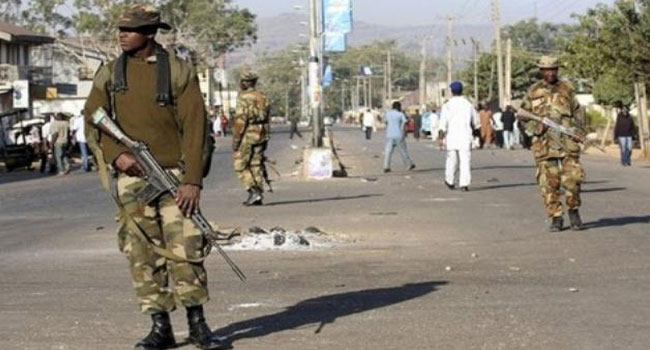If a city was ever at the heart of the grievance associated with the last presidential election, that city was Kaduna. The reasons for this are several. Kaduna retains a unique historical place as the capital city of the old Northern Region; therefore, many of the important Northern institutions have remained central to the socio-economic and cultural life of the city. It is the city of unending political influences, as the place of habitation for several individuals who have held important positions in the different regimes-military and civilian- that have passed through the currents of Nigerian history. It retains its influence also as the heartbeat of Northern political aspirations; where the North continuously converges to chart a path through the discomfiting disadvantages that it has been harvesting from the Nigerian scheme of things, especially since the 1999 transition to civil rule, and the emergence of an anti-North revanchism, under the old despot Olusegun Obasanjo.
Even when the creation of new states became a part of the Nigerian political architecture, from 1967, Kaduna did not lose its central place at the heart of the Northern enterprise. Yes, we have eighteen other state headquarters, but Kaduna remains the Regional hub, in political, cultural and even sentimental senses! And this is the heart of the matter, because many Northerners retain an umbilical affection for the city that the other old regional capitals of Ibadan, Enugu or Benin City, do not possess. Let me use myself as an example. I tell people that I work in Abuja; my house is in Ilorin and my family lives in Kaduna! The relatively short distance to Abuja has even increased the attractiveness of Kaduna. It is also interesting that as capital of Kaduna State, there is an understandable push-and-pull in respect of the place of Kaduna in the local politics of the state. The emergency of Patrick Ibrahim Yakowa as the first governor from the southern part of Kaduna has only accentuated that factor.
But let us go back to my point about the centrality of Kaduna to Northern grievances about the last election; especially the presidential. Kaduna is the place of residence of General Muhammadu Buhari; he is exceedingly popular in the city and a combination of circumstances which conditioned the elections, made the general, the locus of Northern ambition to win presidency. When INEC ‘freed and faired’ Jonathan Goodluck into power, the seething feeling of anger against the injustice of the process busted at the seams and the residences of the political and traditional elite became targets of attack. That was the way it was, until a fifth column was triggered by unknown forces, to attack mosques and churches, in order to change the character of the uprising. It was those attacks which provided the excuse to impose the curfew and facilitated the rigging of the governorship elections in many states in Northern Nigeria, and the subsequent return of the PDP governors.
But the issue is that, the PDP governors have been “freed and faired” back to power; the violence has disappeared and these governors have commenced the prebendal sharing of the loot of their “victories”; but the curfew imposed on the strategic city of Kaduna has remained in force. For all reasonable intents and purposes, the Kaduna curfew has become redundant. There is no indication that people are planning to return to demonstrations; Yakowa is sitting pretty; but the life of people is being made uncomfortable. Again, I will use my family as an example. Two weeks ago, one of my children fell sick in the night and it was so serious, that my wife had to take her to the hospital at about eight. It took over one hour to see the doctor, get her injections and then drive back home. It was scary experience which many other residents of the city can connect with; responding to an emergency during the curfew hours can become a source of danger to family life in Kaduna.
Then there are the conspiracy theories: It is being said that there is a grand plan to destroy economic life in Kaduna, the way that Terminus market in Jos was deliberately destroyed, because the controlling economic groups happened to be Hausa, Fulani and Kanuri. The theory goes further, that Yakowa is not in a hurry to lift curfew, because his people don’t have a significant stake in the economic activities of the city. From about five pm, people begin to hit the roads in Kaduna, in order to be able to arrive at their destinations before the beginning of the curfew hours. The result is heightened gridlock on Kaduna roads, and the fact that economic life is left to hang. If this goes on longer, the economic situation will deteriorate. Where people feel a sense of political injustice, please allow them a sense of belonging by restituting their economic livelihood. It has become imperative for Governor Yakowa to lift the curfew so that we can all return to normalcy. The curfew is no longer helping Kaduna.


